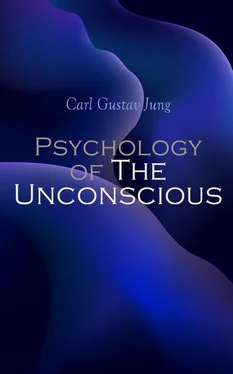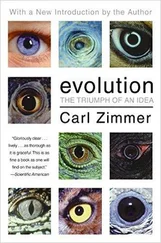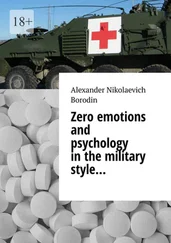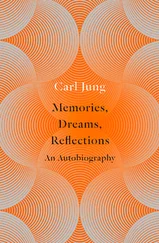Carl Jung - Psychology of The Unconscious
Здесь есть возможность читать онлайн «Carl Jung - Psychology of The Unconscious» — ознакомительный отрывок электронной книги совершенно бесплатно, а после прочтения отрывка купить полную версию. В некоторых случаях можно слушать аудио, скачать через торрент в формате fb2 и присутствует краткое содержание. Жанр: unrecognised, на английском языке. Описание произведения, (предисловие) а так же отзывы посетителей доступны на портале библиотеки ЛибКат.
- Название:Psychology of The Unconscious
- Автор:
- Жанр:
- Год:неизвестен
- ISBN:нет данных
- Рейтинг книги:4 / 5. Голосов: 1
-
Избранное:Добавить в избранное
- Отзывы:
-
Ваша оценка:
- 80
- 1
- 2
- 3
- 4
- 5
Psychology of The Unconscious: краткое содержание, описание и аннотация
Предлагаем к чтению аннотацию, описание, краткое содержание или предисловие (зависит от того, что написал сам автор книги «Psychology of The Unconscious»). Если вы не нашли необходимую информацию о книге — напишите в комментариях, мы постараемся отыскать её.
Psychology of The Unconscious — читать онлайн ознакомительный отрывок
Ниже представлен текст книги, разбитый по страницам. Система сохранения места последней прочитанной страницы, позволяет с удобством читать онлайн бесплатно книгу «Psychology of The Unconscious», без необходимости каждый раз заново искать на чём Вы остановились. Поставьте закладку, и сможете в любой момент перейти на страницу, на которой закончили чтение.
Интервал:
Закладка:
It is feared by many who realize that in these painfully acquired repressions and symptoms lie their safety and their protection from directly facing and dealing with tendencies and characteristics with which they feel unable to cope. The repression and the accompanying symptoms indicate a difficulty and a struggle, and in this way are a sort of compromise or substitute formation which permit, although only in a wasteful and futile manner, the activity of the repressed tendencies. Nevertheless, to analyze the individual back to his original tendencies and reveal to him the meaning of these substitute formations would be a useless procedure in which truly “the last state of that man would be worse than the first” if the work ceased there. The aim is not to destroy those barriers upon which civilized man has so painfully climbed and to reduce him to his primitive state, but, where these have failed or imperfectly succeeded, to help him to attain his greatest possibilities with less expenditure of energy, by less wasteful methods than nature provides. In this achievement lies the hopeful and valuable side of this method—the development of the synthesis. It is hopeful because now a way is opened to deal with these primitive tendencies constructively, and render their effects not only harmless but useful, by utilizing them in higher aims, socially and individually valuable and satisfactory.
This is what has occurred normally in those individuals who seem capable and constructive personalities; in those creative minds that give so much to the race. They have converted certain psychological tendencies which could have produced useless symptoms or destructive actions into valuable productions. Indeed it is not uncommon for strong, capable persons to state themselves that they knew they could have been equally capable of a wasteful or destructive life. This utilization of the energy or libido freed by removing the repressions and the lifting of infantile tendencies and desires into higher purposes and directions suitable for the individual at his present status is called sublimation .
It must not be understood by this discussion that geniuses or wonderful personalities can be created through analysis, for this is not the aim of the procedure. Its purpose is to remove the inhibitions and restrictions which interfere with the full development of the personality, to help individuals attain to that level where they really belong, and to prepare people to better understand and meet life whether they are neurotic sufferers or so-called “normal people” with the difficulties and peculiarities which belong to all.
This reasoning and method of procedure is only new when the application is made to the human being. In all improvements of plants and animals these general principles have been recognized and their teachings constructively utilized.
Luther Burbank, that plant wizard whose work is known to all the world, says, “A knowledge of the battle of the tendencies within a plant is the very basis of all plant improvement,” and “it is not that the work of plant improvement brings with it, incidentally, as people mistakenly think, a knowledge of these forces, it is the knowledge of these forces, rather, which makes plant improvement possible.”
Has this not been also the mistake of man regarding himself, and the cause, partly at least, of his failure to succeed in actually reaching a more advanced and stable development?
This recognition of man’s biological relationship to all life and the practical utilization of this recognition, necessitates a readjustment of thought and asks for an examination and reconsideration of the facts of human conduct which are observable by any thoughtful person. A quiet and progressive upheaval of old ideas has taken place and is still going on. Analytic psychology attempts to unify and value all of the various phenomena of man which have been observed and noted at different times by isolated investigators of isolated manifestations and thus bring some orderly sequence into the whole. It offers a method whereby the relations of the human being biologically to all other living forms can be established, the actual achievement of man himself adequately valued, and opens a vista of the possibilities of improvement in health, happiness and accomplishment for the human being.
Beatrice M. Hinkle.
10 Gramercy Park.
AUTHOR’S NOTE
Table of Contents
My task in this work has been to investigate an individual phantasy system, and in the doing of it problems of such magnitude have been uncovered, that my endeavor to grasp them in their entirety has necessarily meant only a superficial orientation toward those paths, the opening and exploration of which may possibly crown the work of future investigators with success.
I am not in sympathy with the attitude which favors the repression of certain possible working hypotheses because they are perhaps erroneous, and so may possess no lasting value. Certainly I endeavored as far as possible to guard myself from error, which might indeed become especially dangerous upon these dizzy heights, for I am entirely aware of the risks of these investigations. However, I do not consider scientific work as a dogmatic contest, but rather as a work done for the increase and deepening of knowledge.
This contribution is addressed to those having similar ideas concerning science.
In conclusion, I must render thanks to those who have assisted my endeavors with valuable aid, especially my dear wife and my friends, to whose disinterested assistance I am deeply indebted.
C. G. Jung.
Zurich.
PART I
Table of Contents
INTRODUCTION
Table of Contents
Any one who can read Freud’s “Interpretation of the Dream” without scientific rebellion at the newness and apparently unjustified daring of its analytical presentation, and without moral indignation at the astonishing nudity of the dream interpretation, and who can allow this unusual array of facts to influence his mind calmly and without prejudice, will surely be deeply impressed at that place where Freud calls to mind the fact that an individual psychologic conflict, namely, the Incest Phantasy, is the essential root of that powerful ancient dramatic material, the Oedipus legend. The impression made by this simple reference may be likened to that wholly peculiar feeling which arises in us if, for example, in the noise and tumult of a modern street we should come across an ancient relic—the Corinthian capital of a walled-in column, or a fragment of inscription. Just a moment ago we were given over to the noisy ephemeral life of the present, when something very far away and strange appears to us, which turns our attention to things of another order; a glimpse away from the incoherent multiplicity of the present to a higher coherence in history. Very likely it would suddenly occur to us that on this spot where we now run busily to and fro a similar life and activity prevailed two thousand years ago in somewhat other forms; similar passions moved mankind, and man was likewise convinced of the uniqueness of his existence. I would liken the impression which the first acquaintance with the monuments of antiquity so easily leaves behind to that impression which Freud’s reference to the Oedipus legend makes—for while we are still engaged with the confusing impressions of the variability of the Individual Soul, suddenly there is opened a revelation of the simple greatness of the Oedipus tragedy—that never extinguished light of the Grecian theatre.
This breadth of outlook carries in itself something of revelation. For us, the ancient psychology has long since been buried among the shadows of the past; in the schoolroom one could scarcely repress a sceptical smile when one indiscreetly reckoned the comfortable matronly age of Penelope and the age of Jocasta, and comically compared the result of the reckoning with the tragic-erotic struggles in the legend and drama. We did not know at that time (and who knows even to-day?) that the mother can be the all-consuming passion of the son, which perhaps undermines his whole life and tragically destroys it, so that not even the magnitude of the Oedipus Fate seems one jot overdrawn. Rare and pathologically understood cases like Ninon de Lenclos and her son [4]lie too far removed from most of us to give a living impression. But when we follow the paths traced out by Freud, we arrive at a recognition of the present existence of such possibilities, which, although they are too weak to enforce incest, are still strong enough to cause disturbances of considerable magnitude in the soul. The admission of such possibilities to one’s self does not occur without a great burst of moral revulsion. Resistances arise which only too easily dazzle the intellect, and, through that, make knowledge of self impossible. Whenever we succeed, however, in stripping feelings from more scientific knowledge, then that abyss which separates our age from the antique is bridged, and, with astonishment, we see that Oedipus is still a living thing for us. The importance of such an impression should not be undervalued. We are taught by this insight that there is an identity of elementary human conflicts existing independent of time and place. That which affected the Greeks with horror still remains true, but it is true for us only when we give up a vain illusion that we are different—that is to say, more moral, than the ancients. We of the present day have nearly succeeded in forgetting that an indissoluble common bond binds us to the people of antiquity. With this truth a path is opened to the understanding of the ancient mind; an understanding which so far has not existed, and, on one side, leads to an inner sympathy, and, on the other side, to an intellectual comprehension. Through buried strata of the individual soul we come indirectly into possession of the living mind of the ancient culture, and, just precisely through that, do we win that stable point of view outside our own culture, from which, for the first time, an objective understanding of their mechanisms would be possible. At least that is the hope which we get from the rediscovery of the Oedipus problem.
Читать дальшеИнтервал:
Закладка:
Похожие книги на «Psychology of The Unconscious»
Представляем Вашему вниманию похожие книги на «Psychology of The Unconscious» списком для выбора. Мы отобрали схожую по названию и смыслу литературу в надежде предоставить читателям больше вариантов отыскать новые, интересные, ещё непрочитанные произведения.
Обсуждение, отзывы о книге «Psychology of The Unconscious» и просто собственные мнения читателей. Оставьте ваши комментарии, напишите, что Вы думаете о произведении, его смысле или главных героях. Укажите что конкретно понравилось, а что нет, и почему Вы так считаете.












